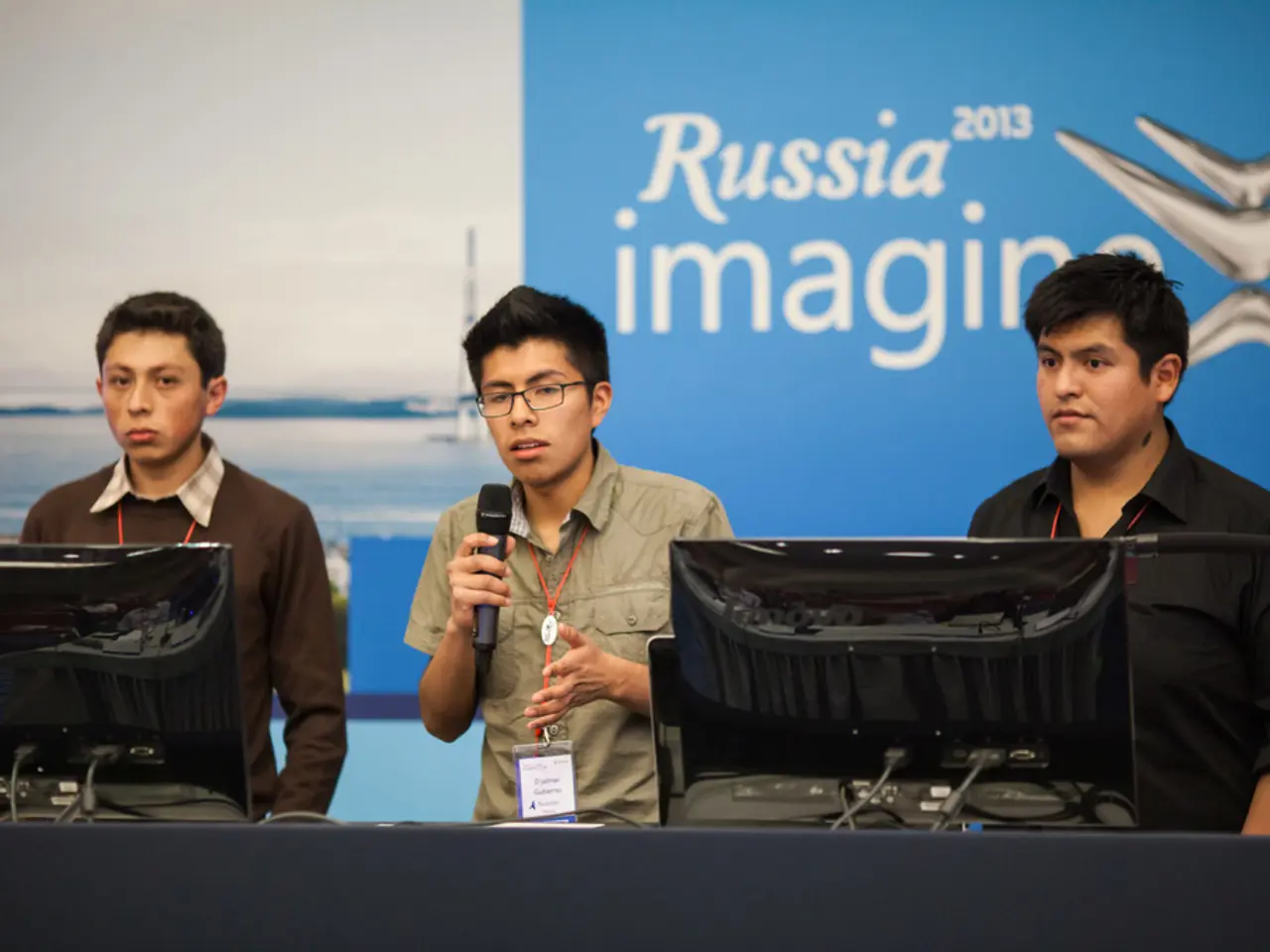Artificial Intelligence Career Resources Confront Young Adult Joblessness
In a bid to combat youth unemployment in Africa, educational institutions are being urged to evolve beyond traditional teaching methods and incorporate technical skills and soft skills, as emphasized by David Sokefun from Codar Tech Africa. One innovative solution gaining traction is the use of AI-powered career tools.
These AI-driven career tools are making a significant impact by offering personalized training and mentorship programs, connecting young people with opportunities in the digital economy, and fostering innovation. They are proving to be a viable alternative to traditional career counseling, offering advantages in terms of availability, affordability, and delivering tailored, data-based recommendations. However, traditional career counseling offers emotional support and a nuanced understanding of personal circumstances, making a combined approach that leverages the strengths of both AI tools and human counselors potentially the most effective way to guide young job seekers.
Partnerships are playing a crucial role in the deployment of these AI career tools. For instance, Microsoft's AI Skills Initiative, Eyouth, EDT&Partners, and Microsoft Philanthropies have teamed up to equip millions with digital skills, with a focus on training 300,000 youth in Kenya's agri-food sector.
Eunice Muthengi from the Mastercard Foundation highlights the importance of collaboration across sectors to create more effective interventions that truly impact young people's lives. The BrighterMonday Uganda-Mastercard Foundation partnership showcases the use of AI-powered tools, such as virtual career assistants, in providing real-time, personalized job search support.
However, scaling AI career tools across Africa faces challenges, including infrastructure deficits, talent shortage, policy gaps, language barriers, and data bias. Current strategies for scaling AI career tools include leveraging cloud infrastructure, AI-powered job matching, digital skills training, and cross-sector partnerships. These strategies, while effective, face challenges such as skills mismatches, systemic barriers, and gaps in education relevance.
Using cloud-based AI platforms for job matching, like the Harambee Youth Employment Accelerator in South Africa partnering with Google Cloud, is one way to overcome cost barriers. Promoting digital literacy and AI skills training, as emphasized by initiatives like Kenya’s Skill Up Africa, is another crucial step in adapting to the evolving job market and fostering self-employment and innovation.
Addressing the challenges faced by AI career tools in Africa requires investments in infrastructure, expanding access to digital education, nurturing local AI expertise, collaboration between governments and private organizations, and establishing policies that promote innovation while safeguarding data sovereignty. Governments, educational institutions, private organizations, and young people themselves must act decisively to harness AI's potential and address youth unemployment in Africa.
Young people must also commit to continuous learning and leverage data insights to guide their career paths. AI could contribute up to $1.5 trillion to Africa's GDP by 2030, with the International Finance Corporation predicting 230 million "digital jobs" in Sub-Saharan Africa by 2030, all requiring some level of digital skills. The urgency of addressing these issues is underscored by Takeshi Oikawa, Managing Director and Partner at BCG, and Pablo Langa, Founder and Managing Partner of EDT&Partners, who emphasize the importance of AI for enhancing the competitiveness of the MENA region.
Reshma Sheoraj from World Data Lab emphasizes the need for governments to design evidence-based programs and invest in infrastructure. Nazia Pillay from SAP Southern Africa calls for private sector organizations to step up investment in workforce development. AI is indeed a promising solution for youth unemployment in Africa, but its potential can only be fully realized with concerted efforts from all stakeholders.
[1] Source [2] Source [3] Source [4] Source [5] Source
- To maximize the impact of AI-powered career tools in Africa's fight against youth unemployment, regulatory frameworks need to be developed that account for infrastructure deficits, talent shortages, and data bias, encouraging collaboration between governments, private organizations, and educational institutions in addressing these challenges.
- As technology plays a significant role in the digital economy, promoting education-and-self-development in the areas of AI and digital skills becomes essential for young people to adapt to the evolving job market and leverage technology for lifestyle improvement, self-employment, and innovation.




